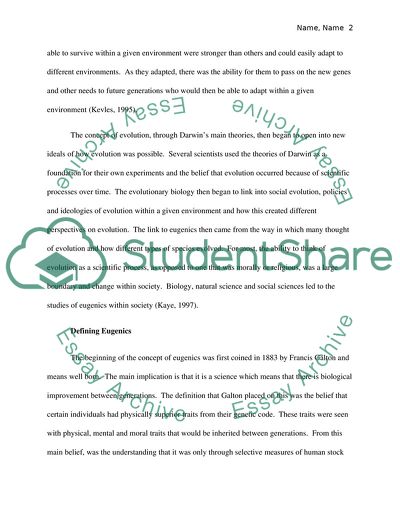Cite this document
(The Theories of Charles Darwin, the Concept of Eugenics Research Paper, n.d.)
The Theories of Charles Darwin, the Concept of Eugenics Research Paper. Retrieved from https://studentshare.org/anthropology/1741265-issues-and-controversies-in-psychology-essay
The Theories of Charles Darwin, the Concept of Eugenics Research Paper. Retrieved from https://studentshare.org/anthropology/1741265-issues-and-controversies-in-psychology-essay
(The Theories of Charles Darwin, the Concept of Eugenics Research Paper)
The Theories of Charles Darwin, the Concept of Eugenics Research Paper. https://studentshare.org/anthropology/1741265-issues-and-controversies-in-psychology-essay.
The Theories of Charles Darwin, the Concept of Eugenics Research Paper. https://studentshare.org/anthropology/1741265-issues-and-controversies-in-psychology-essay.
“The Theories of Charles Darwin, the Concept of Eugenics Research Paper”. https://studentshare.org/anthropology/1741265-issues-and-controversies-in-psychology-essay.


